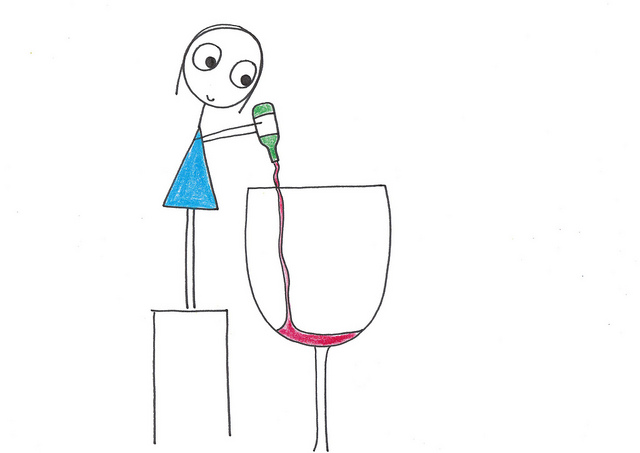
Wine has become the go-to “healthy” alcohol because it contains an antioxidant called resveratrol that studies show offers anti-inflammatory, anti-aging benefits.
The only catch is that we’d have to drink about 1,500 bottles of wine a day to get those results. (Please do not attempt this!)
Resveratrol is a natural plant defense molecule, or “phytonutrient,” found in grapes (and therefore red wine), as well as in peanuts, berries, and a Chinese herb called hu zhang.
All this excitement reinforces the erroneous idea that a single molecule can solve all our health problems. Supplementing with resveratrol can bestow numerous health benefits, but I’m careful not to single out the “magic” of one particular nutrient.
Resveratrol is just one of thousands of polyphenols, which make up just one class of phytonutrients. These phytonutrients act in many ways, the most important of which is as a genetic control system, turning on and off genes that help us stay healthy.
A few years ago, I attended a conference on longevity and aging, and I had a chance to talk with Dr. Leonard Guarente from the Massachusetts Institute of Technology (MIT).
In 1995, Dr. Guarente discovered a gene called SIR-2 in yeast that controls longevity. I asked him what really lurked behind the root of the effects of this “master gene” that controls longevity (called SIRT-1 in humans).
His answer was direct: sugar.
Interestingly, this gene has its master effects on aging by improving how the body controls sugar and insulin sensitivity.
In other words, if we want to slow down aging and all its detrimental problems, start by dramatically reducing sugar intake. It’s that simple.
Simple, but not surprising, considering too much sugar can age us and increase our risk for obesity and type 2 diabetes. People with diabetes get cancer, heart disease, and dementia at far greater rates than the general population.
Taking a magic pill just won’t do the trick. That’s especially true if we consider other obstacles like poor diet, stress, environmental toxins, and a sedentary lifestyle, all of which affect blood sugar control.
These are just the back-to-basics principles of functional medicine I’ve practiced and preached for decades: Identify the bad stuff and take it away. Identify the good stuff and add it.
What can we do to live longer and stay disease-free without drinking 1,500 bottles of wine or taking 360 pills of resveratrol a day? I’ve found these seven tried and true principles benefit just about everyone:
- Balance blood sugar. Increase your intake of whole, fiber-rich foods like beans, whole grains, vegetables, fruits, nuts, and seeds. Reduce sugar, including flour-based and other high-carbohydrate foods that convert to sugar in our body.
- Eat protein with every meal. This helps balance our blood sugar. Ideal options include nuts, beans, fish, lean animal protein, and omega-3 eggs.
- Eat more healthy fat. These good fats improve blood sugar control by working on the same cell-signaling mechanisms as resveratrol. They include omega-3 fatty acids like wild fish (salmon, sardines, black cod, and herring) but also healthy fats like coconut oil and avocado. Learn more about these slimming, health-boosting fats in my book, Eat Fat, Get Thin.
- Find ways to relax every day. Whether that means yoga, meditation, or deep breathing, finding ways to constructively relax prevents diabetes and controls our blood sugar by reducing the stress hormone cortisol.
- Build muscle. Among its many benefits, consistent exercise and building muscle help balance blood sugar and prevent diabetes. Try interval training, a technique of exercising fast (like sprinting) for one minute and then more slowly (like speed-walking) for three minutes. Repeat this in cycles totaling 30 minutes, twice a week.
- Sleep well. Studies connect sleep quality and quantity with longevity. Some of the healthiest patients I’ve seen who age well consistently get seven to nine hours of quality, uninterrupted sleep every night.
- Live clean and green. That means limiting exposure to heavy metals, pollution, and other environmental toxins to optimize our body’s detoxification system and liver function.
We’re all looking for cutting-edge, science-based ways to figuratively turn back the clock and reverse aging’s damaging effects. What strategy would you add here? Share it below or on my Facebook page.
Author: Dr. Mark Hyman
Image: Flickr
Editor: Emily Bartran






Read 0 comments and reply